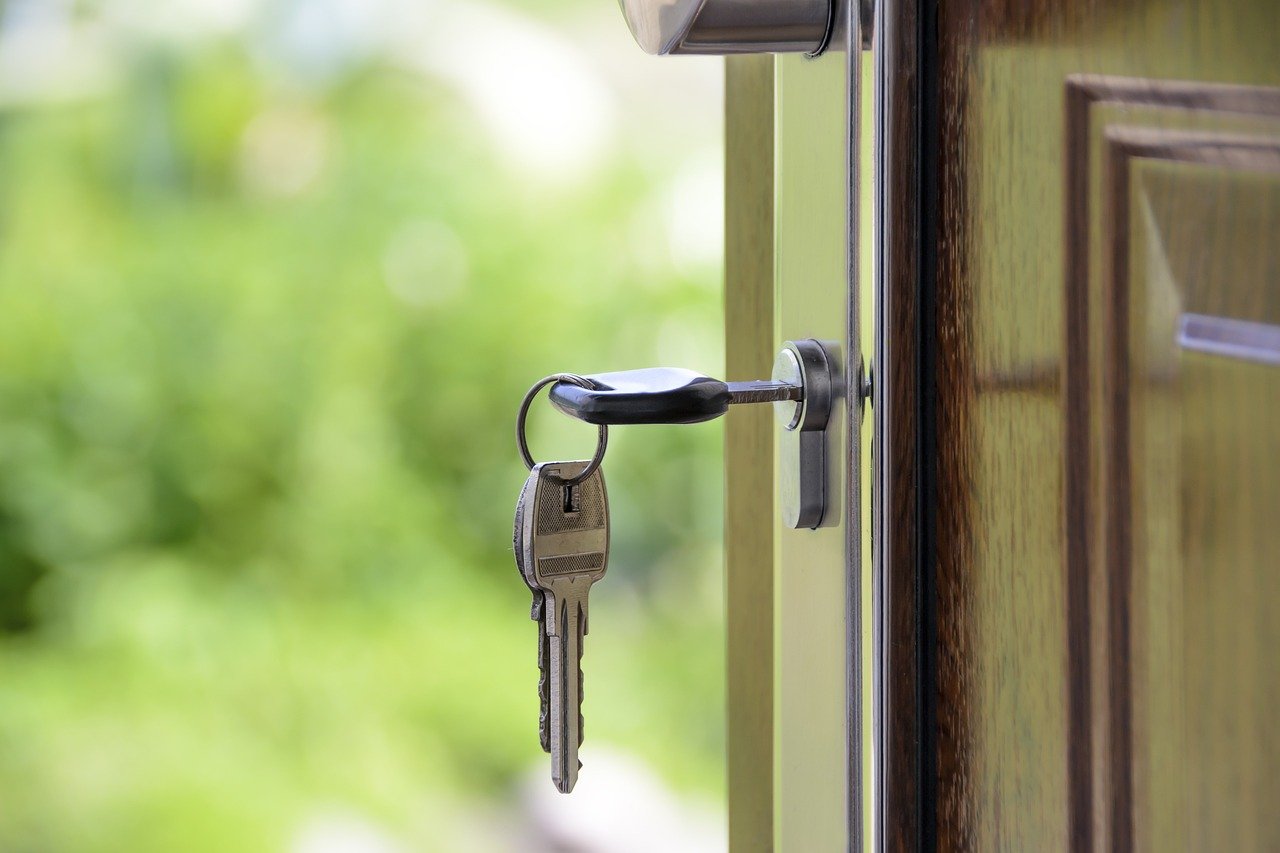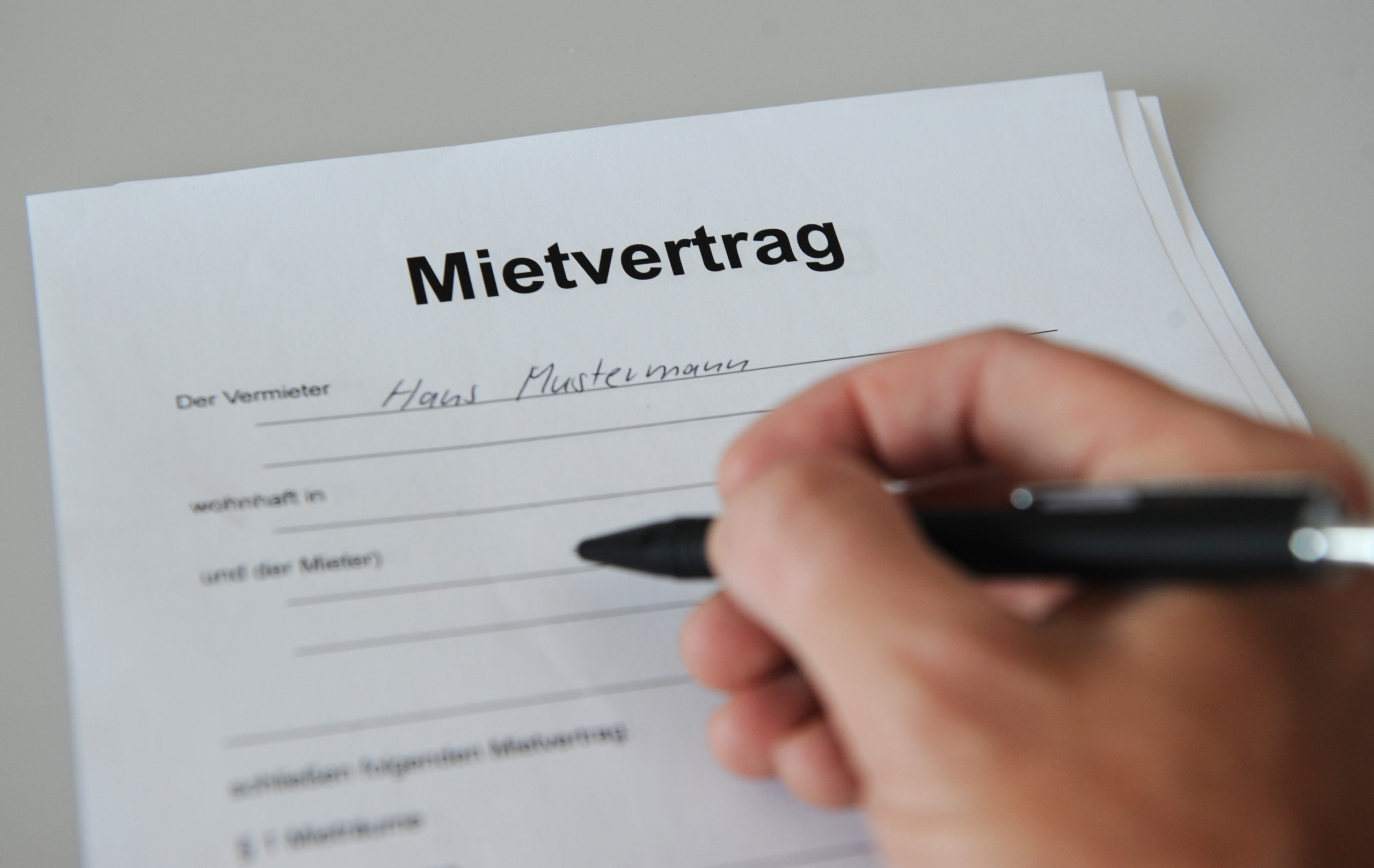What’s going on?
As rents continue to soar and housing becomes a scarce commodity, conditions are tough for anyone trying to navigate the German rental market.
Despite Germany’s strong renter protection laws, many tenants are resorting to overpriced apartments just to find a place to live, particularly in major cities like Berlin and Munich.
According to data from rental portal Immoscout24, the share of furnished rentals on the market has increased from eight percent to 11 percent since 2019.
In the five big cities of Berlin, Frankfurt, Munich, Hamburg and Cologne, the situation is much worse, with furnished flats making up a third of all properties on offer.
On average, furnished apartments cost €10 more per square meter than other rental flats, though the price gap is much higher in the capital. According to ImmoScout, renting a furnished flat in Berlin will set you back around €36.82 per square metre, making it even more expensive than pricey Munich.
READ ALSO: How to find the best place in Germany to move to
Even outside of the major cities, furnished flats let out for exorbitant rents are becoming increasingly common, and experts say this is having an impact on the wider market.
“We are observing a considerable and increasing supply of furnished flats,” Christian Oberst, Senior Economist for Housing Policy and Property Economics at the German Economic Institute (IW), told Tagesschau.
“Furnished flats are rented out at considerable mark-ups, especially in tight housing markets,” he said, adding that rents for furnished flats are significantly higher than those for comparable unfurnished flats.
According to the German Tenants’ Association, these high rents then feed into the rent index and drive up prices across the board, creating a “vicious cycle”.
Why are furnished flats so popular?
It’s no secret that there’s a major imbalance between supply and demand when it comes to housing in Germany, and foreigners in particular can have a hard time getting their foot in the door.
In this tricky environment, paying over the odds for a temporary furnished rental may feel like the only option. Rather than attending endless “castings” for affordable properties, many furnished flats can simply be booked online like an Airbnb, via sites like Wunderflats and HousingAnywhere.

Aside of the relative ease of finding a furnished flat, this type of rental also tends to be popular with people who are living in Germany for a shorter period of time and don’t want to invest in bulky furniture.
That might go some way to explaining why the international hub of Frankfurt is the place with the highest proportion of furnished flats in the country. At 41 percent of the housing stock, furnished apartments make up almost half of the properties available in Frankfurt, catering to an audience of consultants and bankers who are only living in the city for a short time.
READ ALSO: Your best hacks for finding a rental home in Germany
Why are they so expensive?
Though there are some rules regulating how much landlords can charge for furnished rental properties, adding furniture to a rental room or apartment has become a well-known loophole for getting around strict rental laws.
That’s because temporary furnished flats exist in a legal grey area when it comes to rent controls, meaning many landlords feel they have carte blanche to charge whatever they want.
In the case of long-term rentals, furnished flats shouldn’t cost more than 10 percent more than comparable unfurnished rentals – and certainly not more than double as is the case in Berlin. However, defining a long-term or temporary stay has proved tricky in previous cases, as landlords can argue that any cap on the rental contract makes it a “temporary” stay.

One condition of charging more for a furnished flat is if the tenant is living there for a specific purpose, such as completing a training course or work project in that city, but this usually tends to be fudged or skimmed over in the tenancy agreement.
Another big issue is a lack of transparency about how much of the rent is due to the flat being furnished, making it hard for tenants to work out if they’re being overcharged or not.
Since it’s not always easy to guage how much the furniture is worth, it’s also difficult to work out if the surcharge a landlord is chaging is reasonable – though tenants are usually kept in the dark about what this surcharge is in the first place.
Are politicians taking action on this?
There’s been some talk about this, but things are moving slowly right now.
In April last year, Housing Minister Klara Geywitz (SPD) declared that she wanted to close the loopholes that allow landlords to subvert the rent cap by offering furnished flats.
In an attempt to put this issue on the agenda, Bremen and Hamburg brought the topic of furnished flats to the Bunderat, who sent a bill with proposed amendments to the Bundestag. According to the parliamentary website, this bill still hasn’t been discussed.
READ ALSO: What will happen to rents in Germany in 2024?
As part of their campaigning work, the German Tenants’ Association has been calling for more transparency when it comes to itemising rents and additional charges for furniture, arguing that this would help tenants work out if they’re been overcharged.
Of course, another way furnished flats could be minimised on the market is to ensure enough affordable housing for all, but with minimal social housing and anaemic construction rates, this type of solution feels a long way off.



 Please whitelist us to continue reading.
Please whitelist us to continue reading.
Member comments